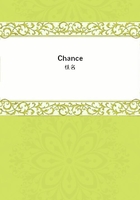
第19章 THE FYNES AND THE GIRL-FRIEND(10)
"No, it isn't necessary," said Marlow, feeling the check to his eloquence but with a great effort at amiability. "You need not even understand it. I continue: with such disposition what prevents women--to use the phrase an old boatswain of my acquaintance applied descriptively to his captain--what prevents them from "coming on deck and playing hell with the ship" generally, is that something in them precise and mysterious, acting both as restraint and as inspiration; their femininity in short which they think they can get rid of by trying hard, but can't, and never will. Therefore we may conclude that, for all their enterprises, the world is and remains safe enough. Feeling, in my character of a lover of peace, soothed by that conclusion I prepared myself to enjoy a fine day.
And it was a fine day; a delicious day, with the horror of the Infinite veiled by the splendid tent of blue; a day innocently bright like a child with a washed face, fresh like an innocent young girl, suave in welcoming one's respects like--like a Roman prelate.
I love such days. They are perfection for remaining indoors. And Ienjoyed it temperamentally in a chair, my feet up on the sill of the open window, a book in my hands and the murmured harmonies of wind and sun in my heart making an accompaniment to the rhythms of my author. Then looking up from the page I saw outside a pair of grey eyes thatched by ragged yellowy-white eyebrows gazing at me solemnly over the toes of my slippers. There was a grave, furrowed brow surmounting that portentous gaze, a brown tweed cap set far back on the perspiring head.
"Come inside," I cried as heartily as my sinking heart would permit.
After a short but severe scuffle with his dog at the outer door, Fyne entered. I treated him without ceremony and only waved my hand towards a chair. Even before he sat down he gasped out:
"We've heard--midday post."
Gasped out! The grave, immovable Fyne of the Civil Service, gasped!
This was enough, you'll admit, to cause me to put my feet to the ground swiftly. That fellow was always making me do things in subtle discord with my meditative temperament. No wonder that I had but a qualified liking for him. I said with just a suspicion of jeering tone:
"Of course. I told you last night on the road that it was a farce we were engaged in."He made the little parlour resound to its foundations with a note of anger positively sepulchral in its depth of tone. "Farce be hanged!
She has bolted with my wife's brother, Captain Anthony." This outburst was followed by complete subsidence. He faltered miserably as he added from force of habit: "The son of the poet, you know."A silence fell. Fyne's several expressions were so many examples of varied consistency. This was the discomfiture of solemnity. My interest of course was revived.
"But hold on," I said. "They didn't go together. Is it a suspicion or does she actually say that . . . ""She has gone after him," stated Fyne in comminatory tones. "By previous arrangement. She confesses that much."He added that it was very shocking. I asked him whether he should have preferred them going off together; and on what ground he based that preference. This was sheer fun for me in regard of the fact that Fyne's too was a runaway match, which even got into the papers in its time, because the late indignant poet had no discretion and sought to avenge this outrage publicly in some absurd way before a bewigged judge. The dejected gesture of little Fyne's hand disarmed my mocking mood. But I could not help expressing my surprise that Mrs. Fyne had not detected at once what was brewing. Women were supposed to have an unerring eye.
He told me that his wife had been very much engaged in a certain work. I had always wondered how she occupied her time. It was in writing. Like her husband she too published a little book. Much later on I came upon it. It had nothing to do with pedestrianism.
It was a sort of hand-book for women with grievances (and all women had them), a sort of compendious theory and practice of feminine free morality. It made you laugh at its transparent simplicity.
But that authorship was revealed to me much later. I didn't of course ask Fyne what work his wife was engaged on; but I marvelled to myself at her complete ignorance of the world, of her own sex and of the other kind of sinners. Yet, where could she have got any experience? Her father had kept her strictly cloistered. Marriage with Fyne was certainly a change but only to another kind of claustration. You may tell me that the ordinary powers of observation ought to have been enough. Why, yes! But, then, as she had set up for a guide and teacher, there was nothing surprising for me in the discovery that she was blind. That's quite in order. She was a profoundly innocent person; only it would not have been proper to tell her husband so.